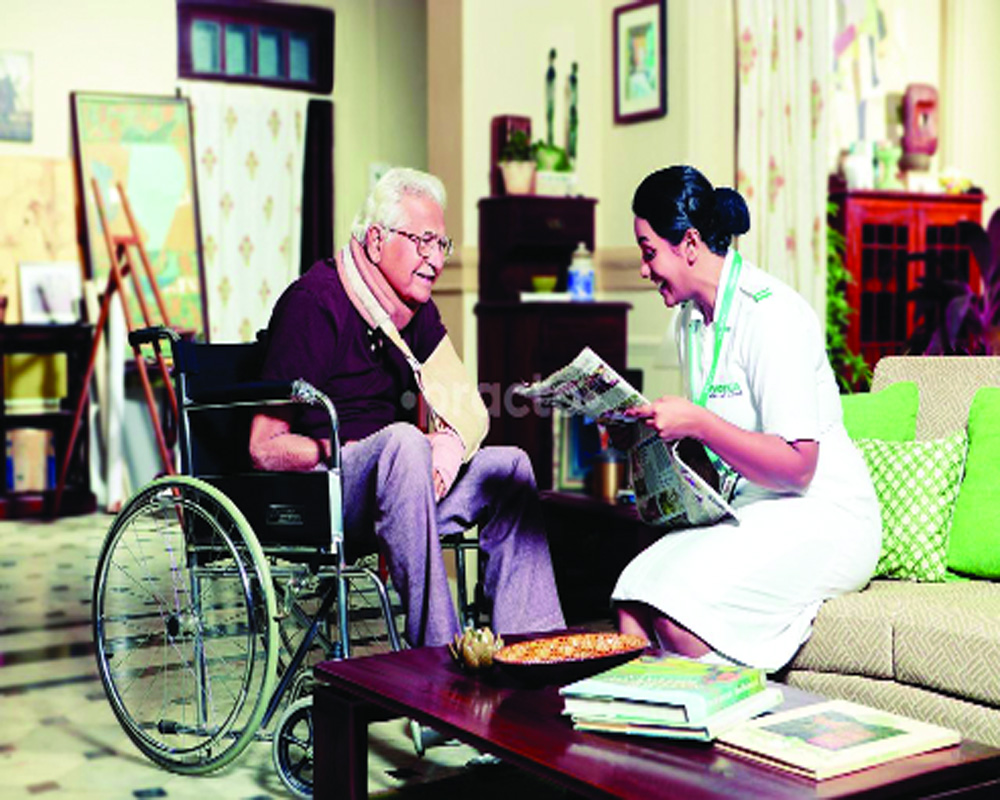According to the UN, the number of senior citizens in India is expected to be around 30 crores by 2050. Hence, there is an urgent need to plan for eldercare, says Neha Sinha
Compared to the rest of the world, today, India is still a ‘young’ country. However, recently, India has been classified as an ‘ageing country’ by the United Nations with 8.6 per cent of the total population over 60 years of age. By 2050, the number of senior citizens in the country is expected to be around 30 crores, which will be approximately one-fifth of the total population (Source CII). To put it in perspective, the elderly population in 2050 would have increased three times, compared to the same in 2011 (when it was 10.4 crores). Hence, there is an urgent need to plan for eldercare, both from a government and private sector perspective.
For many decades, eldercare homes meant institutional care for the poor and destitute, typically not well-run and ill-maintained. But a lot has changed in the last decade. The concept of senior living homes has undergone transformational changes. In most of the Western countries, seniors prefer moving into professionally-run homes post retirement because residential care offerings over there are far evolved and holistic. Various formats of senior care exist and elders can choose to move into a certain set up depending on their current age, health condition and social needs.
There are Continuing Care Retirement Communities (CCRCs), a residential option for elders, that provide flexible housing options, various end to end services as well as 24*7 health and wellness care. Independent living facilities are where the seniors live independently and also get access to a range of services. Assisted living facilities provide elders with round-the-clock help with activities of daily living (ADLs), such as eating, bathing, brushing, dressing etc, along with a well-defined emergency response system. And there are also nursing care homes for skilled nursing needs. Dementia care homes specifically cater to all stages of dementia and memory care requirements and are typically smaller with specialised staff. Palliative and hospice care can be offered in all formats.
As part of Indian culture, we have been wired to believe that taking care of the elderly is only an individual families’ responsibility, not the governments’ or the communities’ at large. When it comes to deciding on eldercare homes for one’s parents, it is never an easy choice but one makes as a last resort, which is often accompanied by guilt and judgement. In our country, socio-economic patterns are changing, and we will continue to see that in the future. Life expectancy will be on the rise, mobility and migration (within India and going abroad) will lead to more elders living in empty nests and participation of women in the workforce will continue to increase. On the other hand, neurological conditions such as dementia are on the rise and we will increasingly not have resources to look after the elderly at home. The pandemic has also shown us that life is unpredictable.
Well established social norms of elder care are already beginning to be altered in the country. The children who have moved away from their homes are constantly looking for options to provide a safe and secure environment for their parents and make their lives more comfortable in their absence. Home care services continue to be the top choice for children staying in the same city but for those in different locations, a reliable residential care facility is becoming the norm. The stigmatisation of seeking professional care for elderly parents is beginning to be questioned. Eldercare homes will increasingly become an active choice by the elders for themselves, since parents don’t want to be a burden on their children.
The next few years will be an important period for this sector. As the industry evolves, there will be various types of eldercare homes available in terms of care offerings, size, location, ownership, management and facilities. In addition, the availability of trained caregivers and professionals will become critical. The staff at such eldercare homes will need to be trained in geriatric and memory care. There will be a need for more nursing institutes, and special courses and certification for geriatric care.
A study shows that taking into account the drivers of future demand, the need for senior living facilities may witness an 8-10 fold increase over the current base. There is a need for the public and private sector to work together, and the CII Taskforce on Senior Care and ASLI (Association of Senior Living) is already a step in that direction. The policies also need to be in place to clearly define standard regulations to qualify to be called as an eldercare home. There is also a need to lay down industry protocols for health, personal care, complaints and protection, environment, staffing, management and administration of the eldercare homes. The government, private sector and the society should join hands to ensure that the elders are able to lead dignified, happy and independent lives.
(The writer is a Dementia Specialist and the CEO and co-founder of Epoch Elder Care.)


























